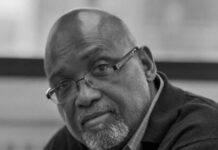 *Here is a partial list of people who President Trump was unable to retain.
*Here is a partial list of people who President Trump was unable to retain.
Sally Yates (Deputy attorney general, refused to enforce Trump’s entry ban), Preet Bharara (U.S. attorney. Days part of purge of U.S. attorneys), Rich Higgins (Director, NSC fired after writing a conspiracy-filled memo), Stephen K. Bannon (Chief strategist, Bannon left after giving a negative interview to American Prospect), Rob Porter (Staff secretary, allegations of spousal abuse became public), Sean Spicer, Press secretary, uncomfortable with hiring of Scaramucci), Carl Icahn (Special adviser, resigned in advance of an article about conflicts of interest).
Some of these people left as soon as Trump was inaugurated because they could see that they would not agree with the direction Trump would push them and their agency. To some degree these resignations were politically motivated because they were brought about because of of a conservative minded chief executive. As such one might dismiss them as unimportant. But it turns out that these resignations were the first wave of a trend that has not ended over 14 months later.
Another groups of people who have determined that they wouldn’t continue to work for President Trump did so after he had proven that he would no acquiesce to their advice in their area of expertise. Gary Cohn’s resignation after the president decided to go ahead with new tariffs is an example of this phenomenon. Quite honestly it is the president’s prerogative to agree or disagree with his advisors and make whatever decision he wills. But good leaders actually realize that they are not omniscient and happily accept the suggestions of people whom they’ve picked. In certain circumstances a leader can go without advisors. But usually that is a small business in which the leader understands every aspect of the business and has less of a need of advisors. But such an analysis doesn’t apply to President Trump. This is his first elected position so he cannot credibly claim to know how the mechanics of politics work. In addition in his professional life before becoming president he had just as many failures as successes. Ergo he should rely on his advisors.
A third category of people who no longer work for President Trump are those who were fired because of his personal preferences. After operating as White House Press Secretary for 6 months Sean Spicer was forced out because of the way he handled a sensitive matter. Again the president is well within his authority to relieve people of their duties. But it seems less than ideal for the president to fire people because they didn’t handle a situation exactly the way he wanted and caused him embarrassment. The position of the presidency is one in which every decision will be scrutinized and will likely receive some criticism so people will speak negatively about you. Also President Trump has made mistakes that created many of the sensitive situations, so letting go of people who are not able to put out his many fires seems unrealistic.
Some might argue that this is inconsequential. That the person who performs any of these Executive Branch jobs doesn’t really matter. But I would argue that the human resources situation under the President is important for two reasons.
First this number of resignations and firings is indicative of a substandard manager. In any other setting if a leader had this many defections in so short a period of time (1 year and 2 months), it would be reasonable to conclude that the problem would be the leader. The fact that there has so much turnover within the Executive Branch substantiates that Trump is the problem (he is the constant).
Second this number of resignations is bad because it leaves important jobs unmanned. Meaning either a job doesn’t get done because there is no one to do it, or someone is asked to do two jobs at once where their productivity in both suffers. In any event the interests of the country are not being fully attended to.
The way in which President Trump has been operating as chief executive is reminiscent of Andrew Jackson. Jackson operated the Executive Branch based on personal considerations and doing so has been remembered as one of the drawbacks of his presidency. Only Jackson had plenty of highlights to balance his ledger.
It would be great if President Trump would get started on his highlights but without trust in his advisors I’m skeptical.
Trevor Brookins is a free lance writer in Rockland County, New York. He is currently working on a book about American culture during the Cold War. His writing has appeared in The Journal News. You can reach him at [email protected] or follow him on Twitter @historictrev.
We Publish News 24/7. Don’t Miss A Story. Click HERE to SUBSCRIBE to Our Newsletter Now!






